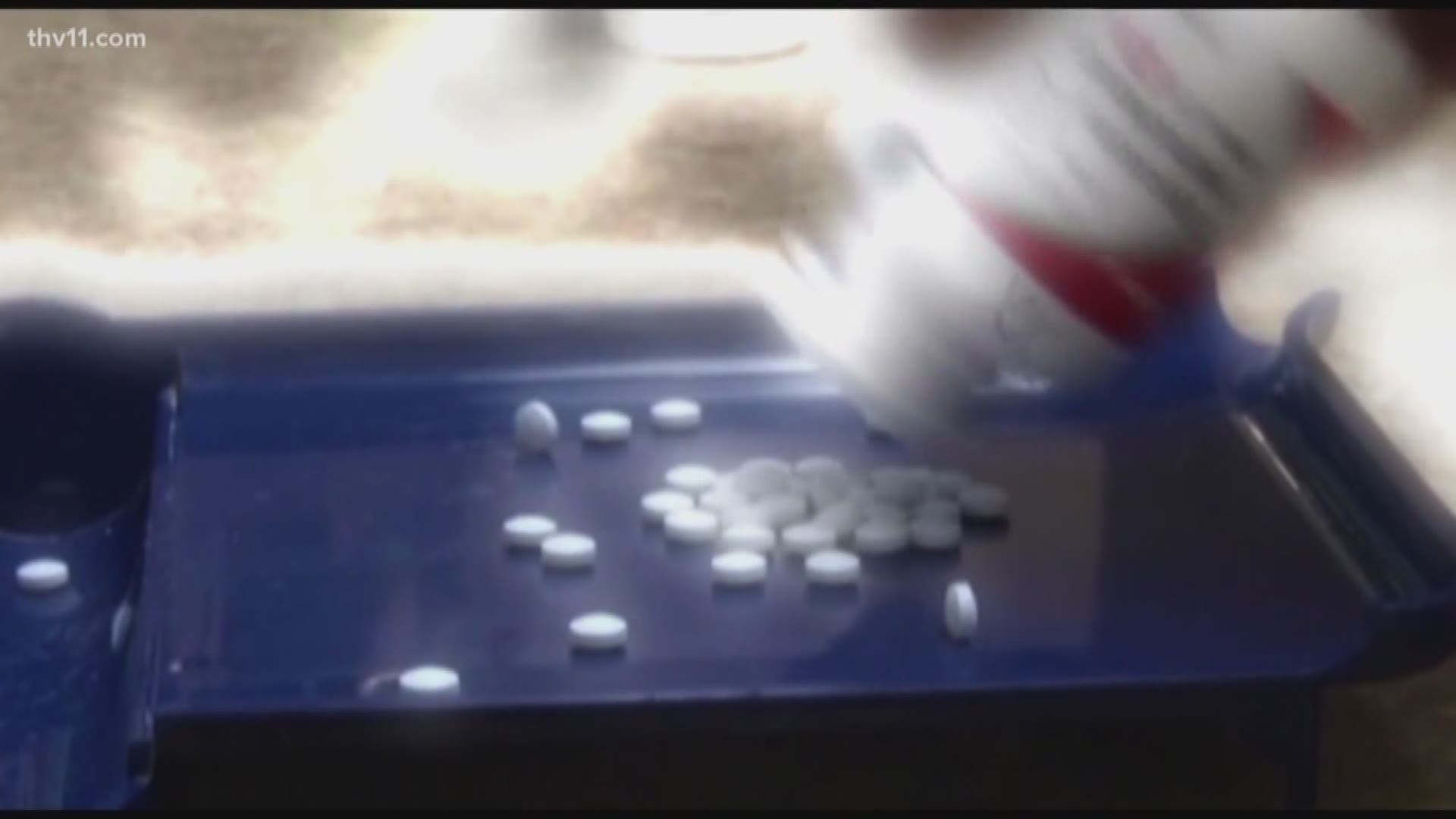It's been more than a year since we focused our efforts on saving a generation caught in the ravages of the opioid epidemic.
Overdoses from pain pills that lead to heroin, and now fentanyl, are killing people across the country every day, including right here in Arkansas.
Pharmaceutical companies are being investigated for the role they played in sparking the fire, but however you view their motives, the product they pushed was designed to relieve pain. A decade into the crisis, there are people still in pain, and have become another group of victims in the opioid epidemic.
“It's messed up so bad it hurts every single day, 24 hours a day seven days a week,” said Kaylee Jackson, a chronic pain patient from Flippin. “In about four hours I can feel my bones just start to hurt so bad that you just want to cry.”
If you shook Jackson she might rattle. A disease she was born with and two major accidents have left her back, neck and other bones permanently broken and have her permanently in pain.
She has a plastic bin filled with different prescriptions including narcotics. When opioid drugs like Oxycontin hit the market, people like Jackson were the target. Chronic pain patients could get their lives back thanks to the way the drugs work in the body, but only when properly prescribed and used as directed. History has shown, though, too many pain killers flooded the country.
“We've got an illegal drug problem in the United States. There is no doubt about it. We need to fix it,” Jackson says, relying on her former career in law enforcement for expertise. “But for 50 years since the DEA has been in business, we've not fixed the drug problem in the United States.”
Right now, the drug war is a life-and-death battle, with people dying from opioid overdoses fueled by all those prescription meds intended to help people like Jackson.
It's a fight that must be waged, but Jackson is now in the crossfire.
“We all get that the illegal drugs need to be taken off the street,” said Jackson, who says she’s sure she is not addicted to the drugs she takes. “To punish an entire nation over these illegal drugs need to, needs to...people need to step back and think about that.”
Jackson went through an eight-month depression when her regular pain specialist, Dr. James Hawk, of Harrison, surrendered his license to dispense narcotics. His office is now closed with a sign in the clinic door referring patients to other physicians several counties away. Jackson now has a two-hour trip to manage her pain and she leaves those appointments with limited amounts of those pain meds.
“We're not letting doctors treat credible, treatable chronic pain patients,” said state senator Terry Rice (R – Waldron), himself a former pain patient after surgeries about 20 years ago. “I don't need it personally, but there are people that do.”
Rice joined Jackson and more than a dozen others for a rally of pain patients at the state capitol in January. The numbers in the group are growing ever since the state medical board put strict limits on narcotic prescriptions last summer. At the direction of the C.D.C., the rules are designed to reduce prescription writing. Arkansas is still second in the nation when it comes to how many scripts get written. Opioids are measured by how much morphine they have and anything over 50 MME is now considered “excessive.” Prescribing a patient above that threshold triggers a host of documentation, testing and reporting up to the 90 MME limit.
“Doctors are not even going up close to the 90 or some of them not doing the documentation, so they're just not prescribing,” said state senator Rice.
“What we are looking for is better stewardship of opioid prescriptions,” said Dr. Johnathan Goree, the director of the AR-Impact program at UAMS. It’s an effort to educate doctors through weekly teleconferences. Medical professionals across the state can work together to solve tough pain management cases. There is precedent for collectively changing the culture.
“We went through this 10 years ago with antibiotics where physicians were overprescribing antibiotics and antibiotics were becoming ineffective,” Dr. Goree said. “I think it's going to take years. Changing a culture does not happen overnight.”
In the meantime, Politicians like Rice and members of the medical board do hear the pleas of people like Jackson, who says she will take heart in that, while also knowing she has little other choice.
“You know what? I'm strong. I can grit my teeth for a long time,” she said.
Hawk, Jackson's former doctor, has had his license has repeatedly suspended for over-prescribing. He met THV11 off camera but said his lawyer has advised him not to comment on his case.

